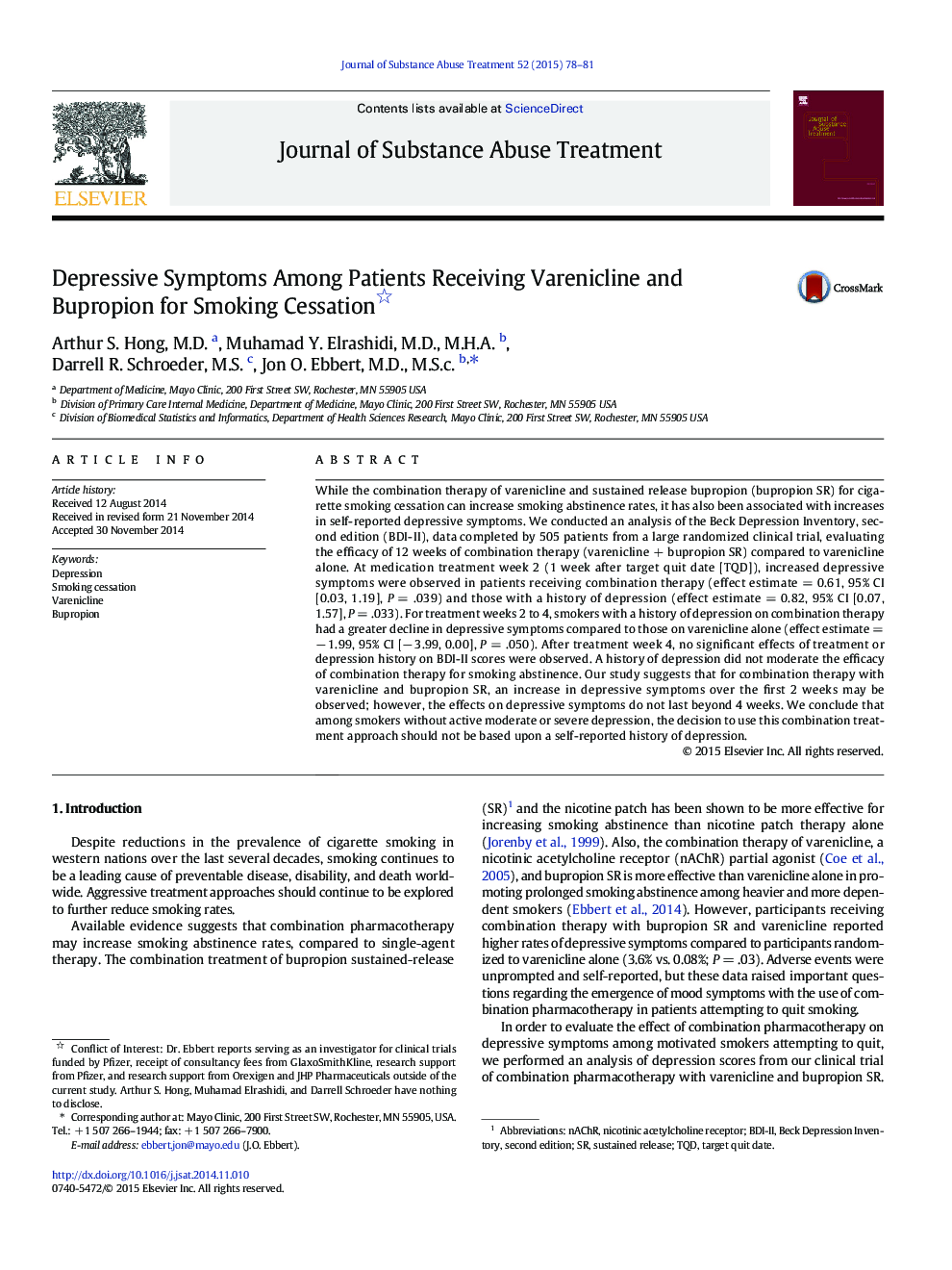| Article ID | Journal | Published Year | Pages | File Type |
|---|---|---|---|---|
| 328424 | Journal of Substance Abuse Treatment | 2015 | 4 Pages |
•Assessment of varenicline + bupropion for quitting smoking on depressive symptoms•Combination therapy increased depressive symptoms in the first 2 weeks.•No effect of therapy or past history of depression on symptoms after 4 weeks treatment•Effectiveness of combination therapy not impacted by previous history of depression
While the combination therapy of varenicline and sustained release bupropion (bupropion SR) for cigarette smoking cessation can increase smoking abstinence rates, it has also been associated with increases in self-reported depressive symptoms. We conducted an analysis of the Beck Depression Inventory, second edition (BDI-II), data completed by 505 patients from a large randomized clinical trial, evaluating the efficacy of 12 weeks of combination therapy (varenicline + bupropion SR) compared to varenicline alone. At medication treatment week 2 (1 week after target quit date [TQD]), increased depressive symptoms were observed in patients receiving combination therapy (effect estimate = 0.61, 95% CI [0.03, 1.19], P = .039) and those with a history of depression (effect estimate = 0.82, 95% CI [0.07, 1.57], P = .033). For treatment weeks 2 to 4, smokers with a history of depression on combination therapy had a greater decline in depressive symptoms compared to those on varenicline alone (effect estimate = − 1.99, 95% CI [− 3.99, 0.00], P = .050). After treatment week 4, no significant effects of treatment or depression history on BDI-II scores were observed. A history of depression did not moderate the efficacy of combination therapy for smoking abstinence. Our study suggests that for combination therapy with varenicline and bupropion SR, an increase in depressive symptoms over the first 2 weeks may be observed; however, the effects on depressive symptoms do not last beyond 4 weeks. We conclude that among smokers without active moderate or severe depression, the decision to use this combination treatment approach should not be based upon a self-reported history of depression.
